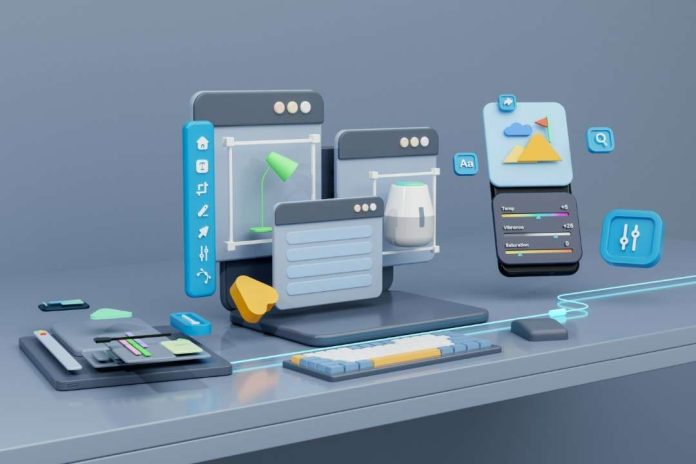Mobile applications have become a new trend to level up your business. These mobile applications offer an optimized solution that undoubtedly helps avoid risking many clients while allowing the company to keep up with the competition.
Before portable devices, people relied on desktop systems to stay connected globally. After the launch of smartphones, and more recently, cloud-based Android platforms like remote Android emulators, the digital world and the way we communicate have changed dramatically.
In 2025, an impressive shift in consumer behavior was observed with changes in development approaches. Since the size of the business doesn’t really matter, whether small businesses or large enterprises, app solutions are meeting the increasing needs and demands of users. This article brings it all in detail, so you don’t have to worry about anything.
Key Takeaways
- Mobile App Development trends in 2025 include AI, edge computing, and augmented reality, transforming user experiences.
- Cross-platform development and low-code solutions are speeding up app creation while reducing costs for businesses.
- 5G technology enhances mobile apps with fast connectivity and supports interactive features for users.
- Wearable technology and IoT applications are providing users with greater control and real-time insights into their daily lives.
- Security and privacy are prioritized in modern mobile app development, ensuring user data remains protected.
Key Trends Shaping The Mobile App Development Industry In 2025

Mobile app developers in Dallas have enhanced their expertise by adopting advanced tools and technologies, along with improved methodologies, to drive innovation in their mobile app solutions.
Here are some of the latest trends in the digital market.
Artificial Intelligence and Machine Learning
AI and machine learning are making mobile apps developed by app development companies in Chicago more innovative and more personalized; they are crafted based on user behavior, while AI chatbots provide 24/7 human-like support.
Additionally, suppose you are running an organization and wondering how well artificial intelligence and machine learning are used there. In that case, AI enhances product decision-making, automates processes, and uses predictive analytics to prioritize features based on historical data.
Edge Computing
By processing data on the device and reducing bandwidth, edge computing boosts app performance, enhances privacy, and enables faster, smarter, and safer app experiences without relying heavily on the cloud.
Augmented Reality, Virtual Reality, and Extended Reality
Mobile app developers are bringing augmented reality (AR), virtual reality (VR), and extended reality (XR) into the mainstream while developing an app in Dallas, helping transform the way users interact.
These immersive technologies allow users to experience virtual elements layered onto the real world, whether for playing games, shopping, attending virtual meetings, exploring new environments, or more. As AR continues to be in demand, users are diving deep to get engaged with and inspire developers to integrate AR into everyday apps.
Cross-Platform Development
By using exceptional frameworks, the developers of an app development company in Chicago build high-quality iOS and Android apps from a single codebase. Not only do these technologies help in reducing costs, but they also speed up launches and boost efficiency.
Internet of Things
Now, with the use of advanced technologies such as the Internet of Things (IoT), the industry is rapidly transforming, allowing users to control everything from homes and cars to wearables from their smartphones.
IoT apps serve as a remote control for home devices, manage energy use, track health via wearables, and enhance security, making everyday life more intelligent and connected.
Wearable Technology
Wearables like smartwatches and fitness trackers are a new trend that is taking productivity, as well as healthcare and fitness, to the next level, with mobile apps providing real-time tracking and personalized insights.
5G Technology
5G is transforming mobile apps by enabling instantaneous AR gaming with HD streaming and seamless IoT connectivity and allows mobile app developers in Dallas to create interactive applications.
Progressive Web Apps
Progressive Web Applications (PWAs) deliver app-like experiences without requiring downloads. It offers responsive and intuitive interfaces while being a cost-effective solution for many businesses.
Low-Code Development
Low-code development is revolutionizing mobile app development, making it easy for everyone to build and launch applications quickly with visual tools while remaining affordable and ideal for startups and small businesses.
Foldable Device Optimization
Foldable smartphones are taking a new turn, elevating the trend in app development, which requires apps to adapt seamlessly to changing screen sizes and transitions between compact and expanded views.
Super Apps
Super apps combine multiple services into a single platform. This also enhances user engagement while creating a powerful ecosystem that makes them a key trend in mobile app development.
UI/UX Trends
Mobile app success pivots on UI/UX, because it is more focused on the ongoing market trends such as voice interfaces, gesture-based navigation, and adaptive minimalist designs that adjust to screens and user preferences.
App Clips and Instant Apps
App Clips for iOS and Instant Apps for Android are lightweight, require no installation, and perform single tasks instantly, perfect for checkouts, previews, ticketing, or QR code scanning.
Dark Mode
Dark mode is well-known for reducing eye strain, saving battery, and looking sleek, and it is now a key feature in modern mobile apps.
App Security and Privacy Trends
Modern mobile apps prioritize security by using AI for real-time threat detection, biometrics, zero-trust architecture, and end-to-end encryption to protect against phishing, malware, and data breaches.
Conclusion
In 2025, app development services will be driven by AI, 5G, IoT, AR/VR, and wearables, with trends like cross-platform, low-code, PWAs, super apps, and instant apps. These technologies are enabling faster, smarter, and more personalized experiences. Moreover, these trends, driven by the latest technologies and tools focused on UI/UX, dark mode, and robust security, ensure apps are engaging, convenient, and safe, making them essential for businesses and users alike.











